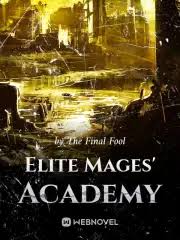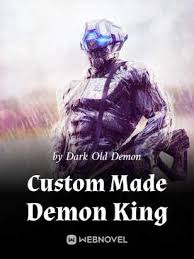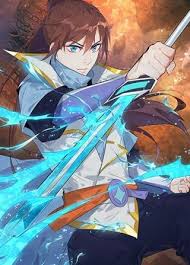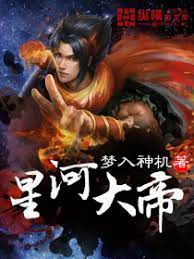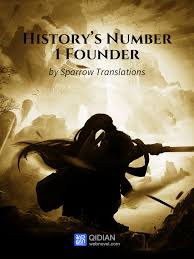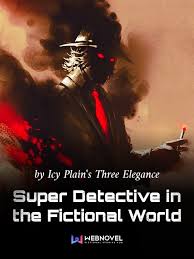The Story in 3 Sentences
A directionless college graduate named Xiao Lin receives a mysterious invitation to Dawn Academy, an elite institution where magic, swordsmanship, and survival against monsters form the core curriculum, thrusting him into a world far beyond ordinary education .
Despite appearing weak compared to his peers, Xiao Lin possesses a rare talent that doubles his experience gain, allowing him to quietly outpace others through relentless training and strategic thinking in a system that rewards combat and cunning over conventional academics .
As he ascends from obscurity, Xiao Lin uncovers deeper conspiracies within the academy and the wider magical world, ultimately confronting existential threats that challenge the very foundations of immortality, power, and human ambition .
Why It Stands Out
1. A Gaming Mind in a Mage’s Body
Elite Mages’ Academy cleverly merges modern gaming logic with xuanhuan progression, treating the academy not as a school but as a live-action RPG where exams involve battling orcs and dungeons replace classrooms. The protagonist’s gamer mindset—focused on optimization, leveling, and resource management—feels fresh in a genre often dominated by reincarnated cultivators or chosen ones .
2. Sci-Fi Meets Spellcraft
Unlike traditional cultivation novels, this story blends high-tech systems, alien elements, and flying dragons into its magical framework, creating a hybrid world where refrigerators and oil lamps coexist, and where magical theory is as important as raw power . This fusion gives the setting a unique texture that avoids the monotony of pure fantasy or pure sci-fi.
3. Ruthless Progression Without Fluff
The narrative moves with purpose, avoiding the common trap of excessive harem-building or filler arcs. Xiao Lin’s journey is marked by pragmatism and a quiet intensity—his growth is earned through repeated trials, not plot armor or sudden divine interventions, making his rise feel both earned and compelling .
Characters That Leave a Mark
There’s the Dean – an enigmatic figure who arrives from the New World with explosive authority, setting the tone for Dawn Academy’s unconventional and high-stakes environment, and whose cryptic guidance hints at deeper layers of the world’s structure .
You’ll meet the Student Union President – who steps in during the dean’s absence to address the incoming class, embodying the academy’s blend of discipline and mystery, and serving as an early indicator that even student leadership operates on a level far beyond typical school hierarchies .
And Holger? They’re the one who, according to fan speculation and in-universe mechanics, delivers extraordinary daily rewards through maxed-out capabilities, symbolizing the game-like optimization culture that permeates the academy’s competitive ecosystem .
The Flaws Fans Debate
Some readers find the characters emotionally distant or “inhuman,” lacking the depth or relatability that would make their struggles resonate beyond surface-level progression .
The logic of the academy’s systems—such as monthly exams that involve life-or-death battles—sometimes strains believability, even within a fantasy context, leading to criticism about internal consistency .
Fans express frustration with how the academy treats talent, noting that institutions meant to nurture rare abilities like Xiao Lin’s SS-grade potential often seem more inclined to suppress or overlook them, which contradicts the stated ethos of elite magical education .
Must-Experience Arcs
Ch. 1–15: Admissions Trial – Xiao Lin navigates the brutal entrance exam alongside dozens of applicants, where weakness means elimination and only the strategically clever survive, establishing the academy’s unforgiving meritocracy .
Ch. 210–220: Battle on the Beach – A large-scale combat arc where students face coordinated monster assaults, testing not just individual power but teamwork, tactical deployment, and the limits of magical endurance in open warfare .
Ch. 710–714: Tomb Raiding and Final Confrontation – In the closing chapters, Xiao Lin delves into an ancient tomb, dons the legendary Phoenix Robe, and faces the ultimate truth behind immortality and the academy’s hidden purpose, bringing his journey to a mythic and conclusive close .
Killer Quotes
“While some of us are lighting oil lamps, he’s been using refrigerators!”
“The walls in his shelter alone are tens of meters thick, it’s the safest place on earth.”
Cultural Impact
Elite Mages’ Academy has carved a niche among English-speaking webnovel readers who crave progression-heavy stories with minimal fluff and a protagonist who wins through intelligence rather than brute force .
Its blend of sci-fi and xuanhuan elements has sparked discussions in online forums about the evolution of the “magic academy” trope beyond Western or traditional Eastern templates .
Though not yet meme-dominant like Solo Leveling, it’s frequently recommended in “underrated progression” lists, often praised for its pacing and refusal to indulge in excessive romantic subplots .
Final Verdict
Start Here If You Want:
A tightly paced academy story where every chapter pushes the plot forward and the protagonist grows through grit, not grace.
A world that feels alive with hybrid technology and ancient magic, offering fresh scenery beyond floating mountains and spirit beasts.
A protagonist who thinks like a player—calculating odds, farming experience, and optimizing builds—making his victories satisfyingly strategic.
Study If You Love:
Narratives that interrogate institutional power through the lens of elite education, where schools are microcosms of societal control and hidden agendas.
The fusion of gaming mechanics with literary storytelling, exploring how XP, ranks, and loot systems can drive character development.
Xuanhuan structures that incorporate sci-fi aesthetics, creating a postmodern magical realism that reflects contemporary digital-native anxieties and aspirations.
Avoid If You Prefer:
Deep emotional character studies or complex interpersonal drama, as the focus remains firmly on progression and world mechanics.
Traditional cultivation purity; this novel’s genre-blending may feel jarring to readers who prefer clearly defined fantasy or sci-fi boundaries.
Stories where the academy serves as a nurturing haven—here, Dawn Academy is a crucible, and survival is never guaranteed, which may frustrate readers seeking comfort or mentorship tropes.
